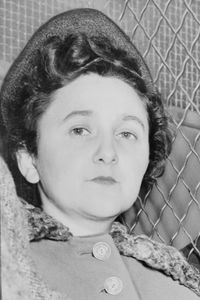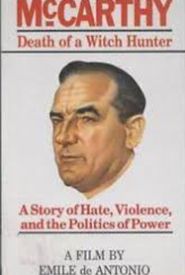Ethel Greenglass Rosenberg was born in the vibrant city of New York, where her parents, Barnet and Tessie Greenglass, worked relentlessly to support their family despite the numerous obstacles they faced. The family's living situation was far from ideal, as they resided in a dilapidated, unheated tenement that lacked the fundamental necessities for a comfortable life. As the sole daughter in the family, Ethel's education was of paramount importance, and she attended Hebrew schools, where she developed a strong foundation in her faith and cultural heritage. Her academic pursuits continued at Seward Park High School, where she excelled and graduated at the remarkable age of 15, a testament to her intellect and dedication to her studies. Following her graduation, Ethel embarked on her professional journey as a clerk for a shipping company, but her tenure was unfortunately cut short due to her involvement in organizing a women workers' strike to combat the poor working conditions and low salaries that were prevalent at the time. This bold move showcased her courage and commitment to social justice, and it was not long before she made the decision to join the American Communist Party, a decision that would have a profound impact on her life and the lives of those around her.
Ethel Rosenberg's life underwent a profound transformation on the occasion of a New Year's Eve benefit, where she had the extraordinary good fortune of making the acquaintance of Julius Rosenberg, a diligent and dedicated civilian inspector for the Army Signal Corps, whose tireless efforts and unwavering dedication played a pivotal role in the war efforts during the tumultuous period of World War II. This serendipitous encounter would ultimately blossom into a lifelong partnership, marked by deep affection and mutual respect. On June 18, 1939, Ethel and Julius sealed their love with a solemn vow, and she devoted herself to her new role as a homemaker, nurturing their two sons, Michael and Robert, as they grew and flourished with each passing day. Meanwhile, Julius pursued his entrepreneurial aspirations by opening a small machine shop in Manhattan, where he collaborated with Ethel's brother, David Greenglass, in a venture that would ultimately become a cornerstone of their family's financial stability.
David Greenglass, a low-ranking sergeant with a storied past, found himself in a precarious situation in the year 1950, as he was taken into custody on suspicion of being involved in a clandestine spy ring that had been secretly providing atomic secrets to the Soviet Union.
Ethel's life underwent a drastic transformation as she spent the next two entire years confined to the harsh environment of Sing Sing prison, steadfastly proclaiming her innocence and clinging to the faintest glimmer of hope that a reprieve might still be forthcoming, despite the bleakness of her situation.
As the days turned into months, and the months into years, Ethel's hopes of being spared from her fate began to dwindle, and the reality of her impending execution began to set in. The weight of her situation was crushing, and the fear of the unknown hung over her like a dark cloud.
It was on the fateful day of June 19, 1953, that Ethel's life came to a tragic end, as she met her demise in the electric chair, a somber milestone that would etch her name into the annals of history as the only American woman to be executed for espionage.
The profound impact of her passing would be felt far and wide, but none more so than by her two young sons, who at the tender ages of six and eight, were left to navigate the complexities of their new reality. They were forced to confront the harsh realities of their mother's execution, and the uncertainty that lay ahead.
As they struggled to come to terms with their new circumstances, Ethel's sons were eventually adopted by another family, a decision that would forever alter the trajectory of their lives. The loss of their mother would leave a gaping hole in their lives, one that would take a lifetime to heal.
The controversy surrounding the alleged culpability of the couple has persisted for an extended period of time, with some individuals steadfastly adhering to the notion that they were unfairly targeted, whereas others remain resolute in their conviction that they were indeed involved in treasonous conduct.
David Greenglass, a pivotal figure in the notorious Rosenberg espionage case, shocked the world with a stunning confession in a 2001 interview with the respected news program "60 Minutes II".
During this groundbreaking conversation, Greenglass courageously came forward to reveal a bombshell: he had, in fact, fabricated the claims about his wife Ethel's involvement in the clandestine spy ring, a revelation that has sent shockwaves of controversy and intrigue rippling through the years.
Nikita Khrushchev's memoirs, a personal and introspective account penned by the former Soviet leader himself, contain revelations that shed light on the Rosenbergs' alleged betrayal of their country.



















